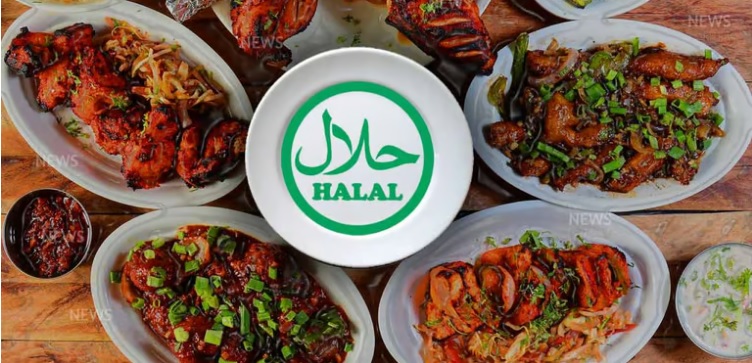Last Updated on October 9, 2024 7:02 pm by INDIAN AWAAZ
Syed Ali Mujtaba / New Delhi
As the demand for Halal products grows globally, including in regions with significant Muslim populations, the Narendra Modi Government has streamlined Halal Certification Process for meat products to boost exports from India.
Interestingly, the Modi Government’s decision comes at the backdrop of strong protest calls; especially from the Hindutva elements who have been making the noise about the Halal certification and its ban for a long time in India. Their argument is the Halal meat product processed by evoking the name of ‘Allah’ and the Muslim way of slaughtering the animals, the Hindus in India have objection to the concept of Halal meat products.
However, the government through the Directorate General of Foreign Trade (DGFT) in a notification, titled “Streamlining of Halal Certification Process for Meat and Meat Product,” dated Oct 01, 2024, said;
“Specified meat and meat products will be allowed to be exported as ‘Halal’ certified to 15 countries, only if such goods are produced or processed and/or packaged in a facility certified under the ‘India Conformity Assessment Scheme (I-CAS) – Halal’ of the Quality Council of India (QCI).”
“After the shipments, the exporter will have to provide the valid certificate to the buyer in the importing country. Policy conditions for export of specified Halal meat and meat products are notified,” the DGFT added.
The DGFT, which comes under the Ministry of Commerce and Industry, has included the names of 15 countries, 13 of them Muslim, where Halal Certified Meat and Food will be exported from India.
The Muslim countries have mandated the Halal Certification for import of meat and meat related products. The Halal certification is given by many private companies, trusts and NGOs in India, including Jamiat Ulama i Hind Halal Trust and Halal India Pvt Ltd, which marks the food or products permissible for export to the Muslim countries.
The Halal Certification bodies are also registered with the International Halal Accreditation Forum (IHAF) – an international network of accreditation bodies mandated to enforce Halal standards in their economies, and members of World Halal Food Council.
Surprisingly, Hindus have a lion share in the export of the Halal meat products. Muslims only benefit from the animal slaughter that too is regulated by the Government.
The global Halal food market is projected to reach $3.9 trillion by 2027. It is interesting to know that the demand of Halal products is growing phenomenally in the world. Even the non Muslim countries like the Philippines and Singapore have made it mandatory to import Halal meat products with Halal certification.
Halal certification is a guarantee that the food is prepared in accordance with Islamic law and is unadulterated. Halal certification means the meat which has been procured is processed only through the ways permitted in Islam. The animal has to be slaughtered through the throat, esophagus, and jugular veins but not by the spinal cord. This is opposed to the ‘Jhatka’ method of slaughtering an animal where the neck gets the blow.
The UP government in 2023 has deemed Halal certification confusing and unenforceable. Its order said, Halal certification is a parallel system that confuses food quality and is not tenable under Section 89 of the Food Law Food Safety and Standards Act.
“The right to decide the quality of food items lies only with the authorities and institutions given in Section 29 of the said Act, who check the relevant standards as per the provisions of the Act”, the government order said.
At that time cases were registered against Halal India Private Limited Chennai, Jamiat Ulama-i-Hind Halal Trust Delhi, Halal Council of India Mumbai, Jamiat Ulama Maharashtra, and others.
Responding to the UP government to ban Halal-Certified Products, Jamiat Ulama-i-Hind Halal Trust, in a statement, termed the allegations made by the UP government as “baseless” and said it will take “necessary legal measures to counter such misinformation”.
file:///C:/Users/hp/Downloads/Notification%20No.%2034-2024-25%20-English.pdf

